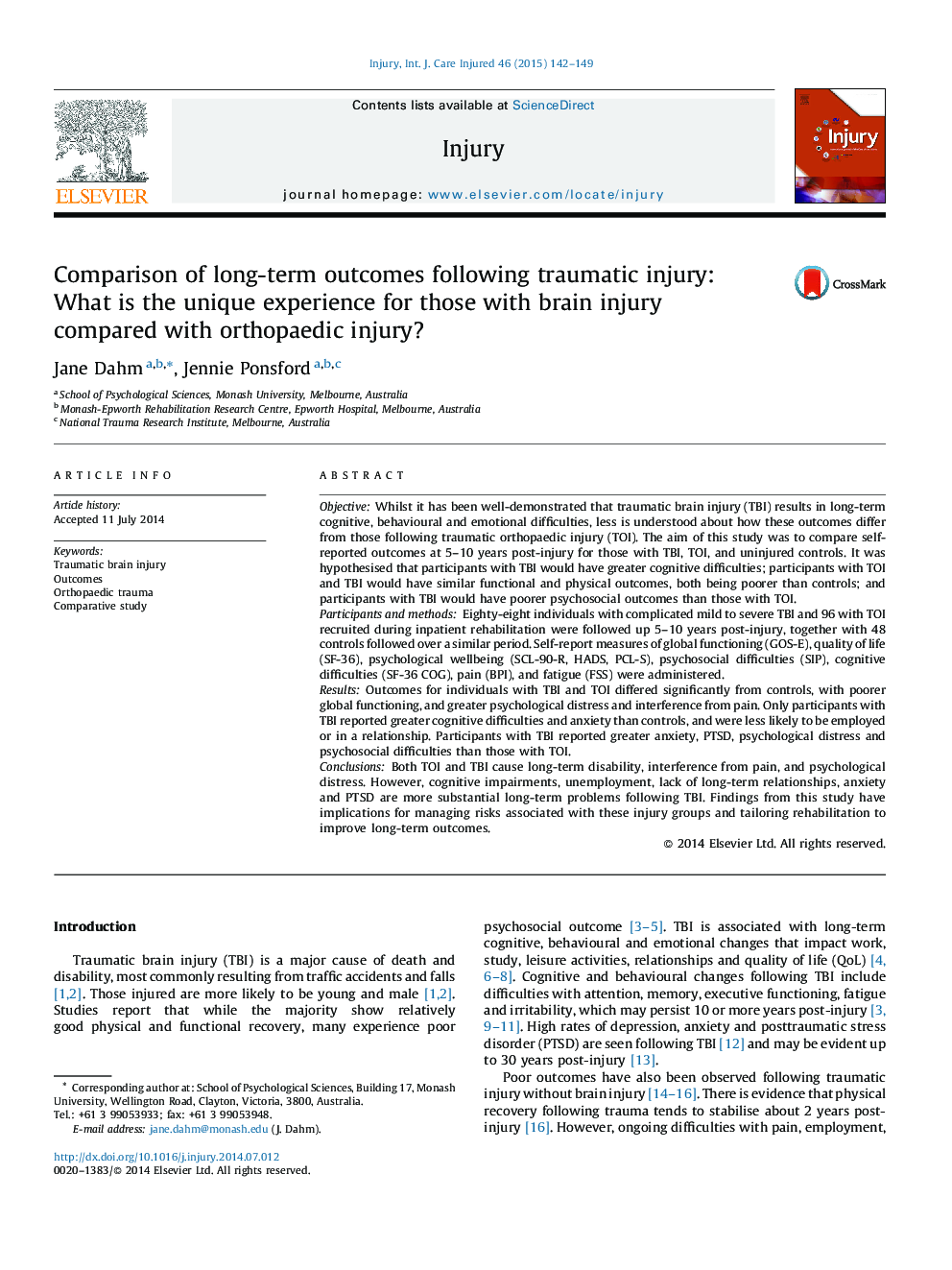| کد مقاله | کد نشریه | سال انتشار | مقاله انگلیسی | نسخه تمام متن |
|---|---|---|---|---|
| 3239186 | 1205986 | 2015 | 8 صفحه PDF | دانلود رایگان |
ObjectiveWhilst it has been well-demonstrated that traumatic brain injury (TBI) results in long-term cognitive, behavioural and emotional difficulties, less is understood about how these outcomes differ from those following traumatic orthopaedic injury (TOI). The aim of this study was to compare self-reported outcomes at 5–10 years post-injury for those with TBI, TOI, and uninjured controls. It was hypothesised that participants with TBI would have greater cognitive difficulties; participants with TOI and TBI would have similar functional and physical outcomes, both being poorer than controls; and participants with TBI would have poorer psychosocial outcomes than those with TOI.Participants and methodsEighty-eight individuals with complicated mild to severe TBI and 96 with TOI recruited during inpatient rehabilitation were followed up 5–10 years post-injury, together with 48 controls followed over a similar period. Self-report measures of global functioning (GOS-E), quality of life (SF-36), psychological wellbeing (SCL-90-R, HADS, PCL-S), psychosocial difficulties (SIP), cognitive difficulties (SF-36 COG), pain (BPI), and fatigue (FSS) were administered.ResultsOutcomes for individuals with TBI and TOI differed significantly from controls, with poorer global functioning, and greater psychological distress and interference from pain. Only participants with TBI reported greater cognitive difficulties and anxiety than controls, and were less likely to be employed or in a relationship. Participants with TBI reported greater anxiety, PTSD, psychological distress and psychosocial difficulties than those with TOI.ConclusionsBoth TOI and TBI cause long-term disability, interference from pain, and psychological distress. However, cognitive impairments, unemployment, lack of long-term relationships, anxiety and PTSD are more substantial long-term problems following TBI. Findings from this study have implications for managing risks associated with these injury groups and tailoring rehabilitation to improve long-term outcomes.
Journal: Injury - Volume 46, Issue 1, January 2015, Pages 142–149
